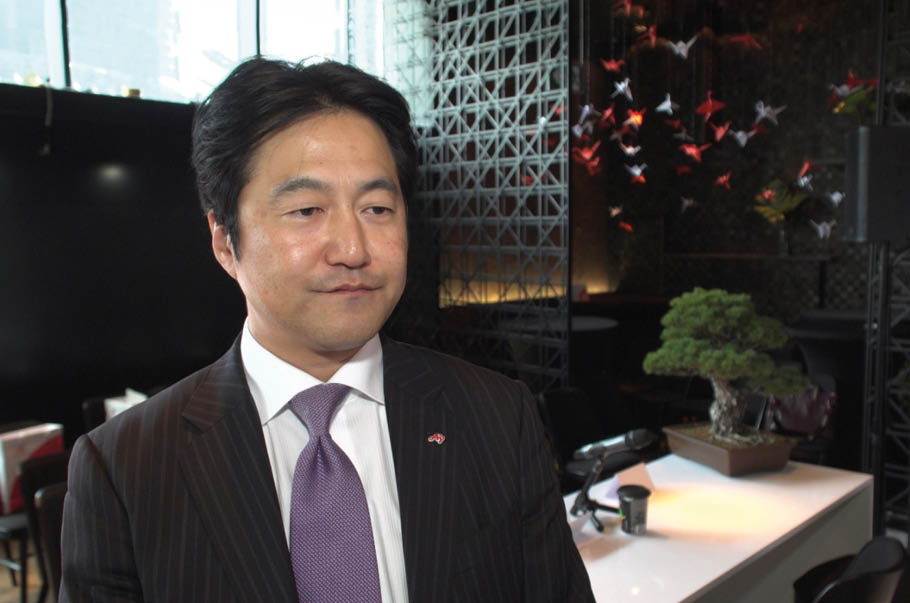“The value of the ready meal market in Poland exceeds PLN 1 billion annually. Recently, we recorded an annual growth of approx. 5%. This fact makes this market attractive to us, not just in terms of instant soups or noodle meals but also with regard to vegetarian or vegan products, or rice noodles. We notice large opportunities for development in Poland,” Toshiro Tsuboi, the President of the Board of Ajinomoto Poland, says to the Newseria Biznes news agency.
The Poles’ nutritional habits have been changing over the recent years. The pace of life is increasingly faster, so not everyone is able to spare some time for the preparation of a home meal every day. Hence, the growing popularity of ready meals. As late as 2012, the value of the instant meal category amounted to approx. PLN 924 million. In 2018, it already reached PLN 1.53 billion according to the Economist Intelligence Unit, and forecasts assume it will grow at a rate of 7-8% in the following years. According to the study by Kantar Millward Brown, almost 85% of Poles reach for instant meals in cups.
“The market of ready products is growing. Our product category – noodles and fried meals – is worth more than PLN 400 million and grows several percent year on year. Among the trends, we notice an increase in sales of oriental products. Traditional Polish tastes, such as fried chicken or tomato soup, are still important and account for the vast majority of the products we sell, but the growth rate of oriental brands is significantly higher, at a level of approx. 20% over the last three years vs. several percent for traditional brands,” says Sergiusz Matusiak, the Vice-President of the Board of Ajinomoto Poland.
Consumer research confirms the changing taste preferences of the Poles. Oriental tastes enjoy more and more popularity. According to the Nielsen research of September 2018, their share in the market is on the rise, both in terms of value and quantity. The quantitative share of oriental products has increased to 42%, and the value share to 37%.
“Polish people have known Asian cuisine for many years, yet recently, their awareness is definitely growing. At the outset of our business 20 years ago, Asian products sold at the level of several hundred million zlotys, while now, the market is worth PLN 1.5 billion. People tend to travel through Asia more, they like and appreciate Asian cuisine – especially the Japanese one, being synonymous with quality and health. We, in turn, try to promote Asian and Japanese cuisine in Poland through our products, and simultaneously offer products that are convenient and easy to prepare,” Sergiusz Matusiak says.
In 2017, 43% of the surveyed Poles visited restaurants offering Chinese or Vietnamese cuisine (compared to 15% in 2015), and 25% visited a Japanese restaurant (compared to 9% as late as two years before). In Warsaw, the number of restaurants offering sushi and Japanese dishes grows at a rate of approx. 5% year-on-year. The Vice-President of Ajinomoto Poland stresses that this trend also translates to the market of ready meals.
“The prospects for market development are good, we can see growing popularity of oriental cuisine, as well as of convenient and easy-to-make products. It is important to expand the offer; it should not consist of the same tastes over and over but the choice should be increasingly rich,” Sergiusz Matusiak says.
He stresses that the share of private labels on the ready meal market has dropped by nearly twenty percent over the last 20 years. On the other hand, the share of producer brands is growing.
“This is particularly important given the fact that we are slowly departing from focusing on price. Under price competition, we often forget about quality, which has an adverse impact on the consumers. Companies invest in R&D, research departments, they focus on quality, since if it is a brand product, its quality affects the company’s reputation. This is why we are glad that the Polish people pay more and more attention to the quality of the products, rather than just the price,” Sergiusz Matusiak says.
Ajinomoto – with its offer of Japanese soups and noodle meals under the OYAKATA brand – intends to introduce new ready products inspired by Japanese cuisine to the Polish market. This year, the company plans to import original Thai soups under the YumYum brand in three most popular tastes.
“We would like to release instant foodstuffs to the market, including both noodle products and vegetarian or vegan ones. We also envisage investments in marketing activities. We do not want to restrict ourselves just to activity in the social media, such as Instagram or Facebook, but to implement a TV campaign in other mass media as well,” Toshiro Tsuboi says.
The company has been present on the Polish market for 20 years. Its own production plant in Małkinia has doubled its employment and production capacity over that time, with more than 300 people working there currently. In 2016, the company launched a modern production line for instant noodle soups in cups, designed in Japan.
“Twenty years ago, we decided to enter the Polish market, since it is the second largest market of ready meals with noodles in the European Union. Therefore, the first reason was the large market opportunities we had noticed in Poland. The second one was the deep, very close and well-founded relations between Poland and Japan,” says the President of the Board of Ajinomoto Poland.
Investments connected with the expansion of the storage area by another 33 pallet spaces and of welfare facilities for the employees are planned this year.
“Another direction of our activities is the launching of internal production of liquid spices. Currently, the spices used in our products come from external suppliers. In the nearest future, we intend to activate our own production,” Toshiro Tsuboi says.
Toshiro Tsuboi, President of the Management Board of Ajinomoto Poland
Sergiusz Matusiak, Vice-President of the Management Board of Ajinomoto Poland
Source: Newseria.pl












